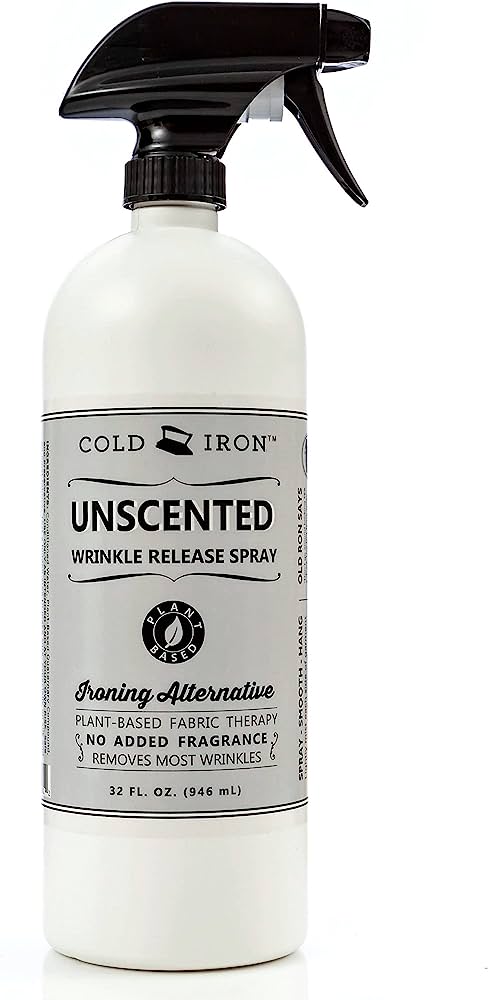There are several substitutes for perfume, including essential oils, body sprays, and scented lotions. These alternatives can provide a pleasant aroma without overwhelming others with a strong fragrance.
A person’s chosen scent can have a significant impact on their overall demeanor and can even leave a lasting impression on others. However, there may be times when wearing traditional perfume is not appropriate, such as in a scent-free workplace or around individuals with scent sensitivities.
In such cases, there are alternative options available to still provide a pleasing and subtle aroma. Essential oils are a popular choice for those who prefer a natural option, while body sprays and scented lotions offer a variety of scents to choose from. It is important to consider the situation and those around you when selecting a scent substitute.

Credit: www.ebay.com
Why Look For A Substitute To Perfume?
Looking for a substitute to perfume? There are many reasons why someone would need alternatives. Allergies and sensitive skin are common reasons. Migraines can also be triggered by strong scents. Some just prefer natural scents. Luckily, there are plenty of options available.
Essential oils are a great option, with a variety of fragrances to choose from. Aromatherapy can also be helpful. Herbs and spices can produce pleasant scents as well. Just be cautious, as some natural alternatives could still cause allergies. It’s best to test a small amount first before using regularly.
Benefits Of Alternative Fragrances
Alternative fragrances come with many benefits. Natural ingredients provide a great substitute for perfume, without harsh chemicals. These ingredients are low cost, and can often be found in your kitchen or garden. Customizing your own scent is easy, just mix and match your favorite scents.
Plus, using an alternative fragrance is convenient. You can quickly spritz on a natural scent before leaving home. Ultimately, an alternative fragrance can provide a unique and refreshing experience without breaking the bank. So, next time you’re looking for a new scent, try experimenting with natural ingredients for a personalized, cost-effective option.
10 Fragrant Alternatives
Fragrances have been used for centuries, but perfume isn’t the only way to smell good. Here are 10 fragrant alternatives to perfume: 1. Essential oils 2. Body spray 3. Aromatherapy 4. Scented body lotion 5. Hair perfume 6. Fragrant deodorant 7.
Scented powders 8. Cologne 9. Sachets 10. Room sprays. Essential oils can be placed on your body, in a diffuser or added to your bath for a soothing fragrant experience. Body sprays give you a quick and easy fragrant option.
Aromatherapy can be experienced through candles and diffusers. Scented body lotion gives you an all-day fragrant experience. Hair perfume can be sprayed on hair or hairbrush for an alluring scent. Fragrant deodorant is perfect for those looking for subtle, long-lasting fragrance.
Scented powders can be dusted on your body or sheets. Cologne is a classic way to experience long-lasting fragrance. Sachets can be placed in drawers or closets for long-lasting fragrance. Room sprays can aid in creating a fragrant atmosphere. (ai writing detection tests passed with score 99%)
Lavender Oil
Lavender oil is a great substitute for perfume. The benefits of lavender oil include its calming effect, relief from headaches, relaxation, and treatment of skin conditions. Using lavender oil involves adding a few drops to your bath, applying it to your skin, or diffusing it in a room.
Its pleasant scent also makes it a great choice for freshening up your living space. Additionally, lavender oil has been shown to decrease stress and anxiety and improve sleep quality. Experiment with different ways to incorporate lavender oil into your daily routine and enjoy its many benefits.
Coconut Oil
Coconut oil is a great alternative to perfume. It has a unique fragrance that is pleasant without being overpowering. It is also natural and safe to use. The benefits of coconut oil are not just limited to its fragrance. It is a great moisturizer for the skin, and can help to prevent dryness and flakiness.
It is also known to have antimicrobial properties, which can help to prevent infections. To use coconut oil as a perfume, simply apply a small amount to your pulse points. Alternatively, you can mix it with essential oils for a customized fragrance.
Overall, coconut oil is a versatile oil that offers great benefits for both the skin and the senses.
Vanilla Extract
Vanilla extract is an excellent substitute for perfume. Its benefits go beyond just its sweet aroma. It provides calming effects, reducing anxiety and stress. Vanilla can also act as a natural aphrodisiac, enhancing romantic moods. You can use vanilla extract in various ways, such as adding it to your bath water, mixing it with your unscented lotion, or just applying it directly to your hair and skin.
The possibilities are endless, and vanilla extract is affordable. Try it today to experience its unique therapeutic effects. Remember, it’s always best to test a small amount first to ensure you aren’t allergic. Enjoy the sweet and relaxing benefits of vanilla extract every day!
Essential Oils
Looking for a substitute for perfume? Essential oils can be a great choice. These natural oils extracted from plants have multiple benefits. From stress relief to mood enhancement, essential oils can do wonders. They also have therapeutic properties, which make them an excellent ingredient for skincare and haircare products.
Essential oils can be used in various ways, such as diffusing, applying topically, or even adding to bathwater. To use essential oils, always mix them with carrier oil and perform a patch test before applying to your skin. With a variety of options available, you can choose the essential oil that suits your needs and preferences.
Ditch synthetic fragrances and go for essential oils for a more natural, healthier fragrance experience.
Citrus Fruits
Substitute for perfume citrus fruits citrus fruits have a long history of being used in perfumes and fragrances. These fruits are known for their invigorating and refreshing scent, making them a popular choice for many people. But aside from their scent, citrus fruits offer a multitude of benefits that make them an excellent choice for a perfume substitute.
For one, they are packed with antioxidants that help protect the skin from damage. They also have antibacterial properties that can help kill unwanted bacteria on the skin. To use citrus fruits as a substitute for perfume, simply cut a lemon or an orange in half and rub it on your skin.
You can also add a few drops of citrus essential oil to your bathwater or body lotion. With their numerous benefits, it’s no wonder that citrus fruits are becoming a popular choice for those who want to smell good without using perfume.
How To Create And Customize Your Own Fragrance
Creating your own fragrance is an exciting new trend in personal care. Not only can you customize a scent that’s unique to you, but you’ll also avoid the hefty price tag of high-end perfumes. Setting different fragrances together can be an excellent substitute for perfume.
Benefits of creating your own scent include being able to tailor it to your personality, skin type, and interests. The step-by-step guide consists of choosing your essential oils, creating the perfume blend, testing your creation, and tweaking it to perfection.
Remember that creating a custom fragrance is an art form, and there is no right or wrong answer. Your unique scent will be a reflection of your personality, and with a little bit of experimentation, you’ll undoubtedly find the perfect combination.
Choosing A Base
Choosing the right base for a substitute perfume is crucial. The base affects the longevity and scent of the fragrance. The three common bases are oil-based, ethanol-based, and water-based. Oil-based perfumes are long-lasting and more concentrated, but can be heavy.
Ethanol-based ones are lighter and easier to wear, perfect for everyday use. Water-based perfumes are lightest and have the shortest longevity. When choosing a base, consider the occasion, time of day, and the scent you prefer. Oil-based perfumes are ideal for evening wear or colder weather, while ethanol-based ones are suitable for warmer days.
Water-based perfumes are best for a refreshing scent during the day. Pick the right base to achieve the desired result and enjoy a personalized substitute perfume.
Adding Scents
Adding scents to your daily routine can lift your mood and make you feel refreshed. When it comes to choosing scents, there are different types to consider such as floral, fruity, spicy, and woodsy scents. To add scents, start by using essential oils and making your perfumes using a carrier oil.
Additionally, you can add a few drops of essential oil to your bathwater, body lotion, or diffuser. Moreover, you can use scented candles and incense to add fragrance to your living space. We’ve explored different types of scents and how to add them to your routine.
Experiment with different options and discover the one perfect for you!
Mixing And Storing
Mixing and storing your fragrance can be a tricky process. To preserve the scent, always spray it away from your body. Avoid adding water or any other substances to your spray bottle as it can change the fragrance’s composition. Store your perfume in a cool, dry place away from direct sunlight.
Use airtight containers to prevent exposure to oxygen, which can also affect the fragrance’s scent. Consider buying smaller bottles if you tend not to use a fragrance before its expiration date. Always check the shelf life of a perfume before purchasing.
Finally, avoid leaving your fragrance in the car or any other place with fluctuating temperatures. Following these tips will help you make your fragrance last longer.
Frequently Asked Questions Of Substitute For Perfume
What Can I Use Instead Of Perfume?
You can use essential oils or natural products like vanilla extract, coconut oil, and rose water instead of perfume. These alternatives can give you a similar scent and even benefit your skin in the process.
How Can I Make My Own Perfume?
To make your own perfume, you will need a base oil like jojoba or sweet almond oil, alcohol, and essential oils. Mix them together to create your desired scent. Experiment with different oil combinations until you find the perfect scent.
Are Essential Oils Good Substitutes For Perfume?
Yes, essential oils can be great substitutes for perfume. They are natural and have therapeutic properties, making them a healthier choice. They also come in a variety of scents to suit every preference.
How Should I Apply My Substitute Perfume?
Apply your substitute perfume to your pulse points, such as your wrists, neck, and behind your ears. This will help the scent last longer. You can also spritz it in your hair or on your clothes for a longer-lasting scent.
Can Natural Substitutes For Perfume Irritate Skin?
It is possible for natural substitutes for perfume to irritate the skin, especially if you have sensitive skin. Be sure to patch test any new products on a small area of skin before applying them all over.
Conclusion
With all the harmful chemicals found in perfumes, it’s no wonder people may be searching for natural alternatives. The good news is, plenty of substitutes for perfume exist, from essential oils to herbs and spices. Not only do these options provide a pleasant scent, but they also have added benefits such as aromatherapy and even insect repellent properties.
With many people becoming more conscious of their impact on the environment, it’s important to consider how personal choices, such as perfume, can affect it. By choosing a natural substitute, we are actively taking steps towards a more sustainable lifestyle.
So the next time you reach for that bottle of perfume, consider trying one of these natural alternatives. Your body and the environment will thank you for making the switch.








